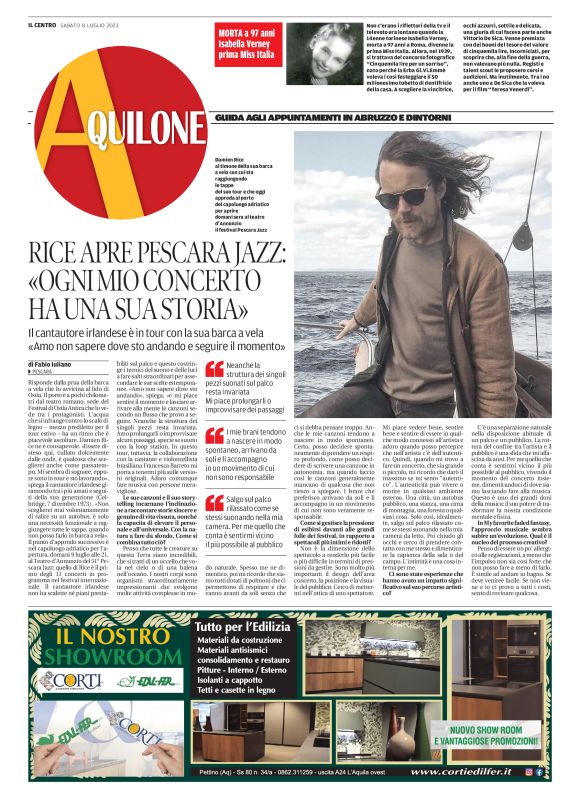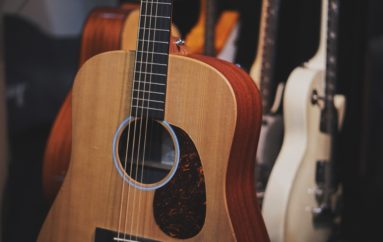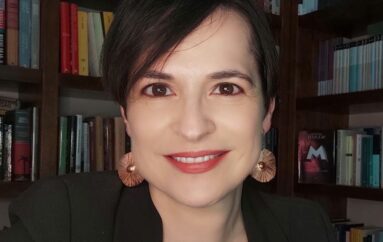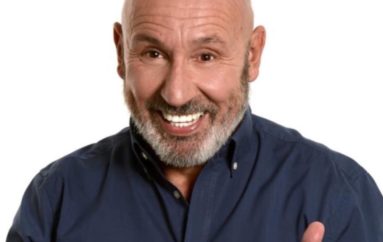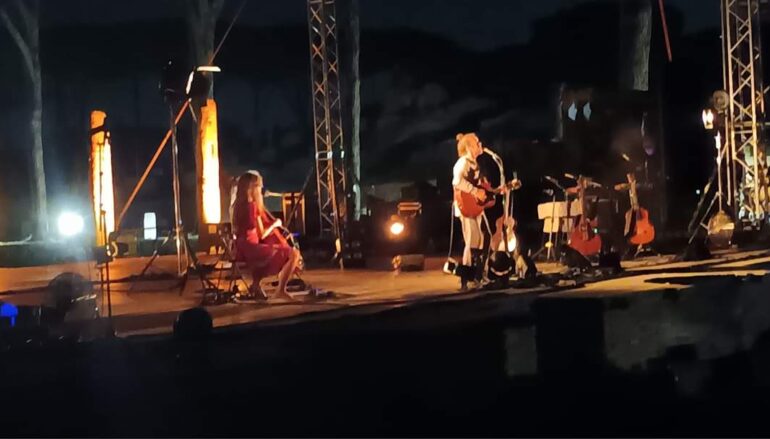
Rice apre Pescara Jazz: “Ogni mio concerto ha una sua storia”
Risponde sdraiato sulla prua della barca a vela che lo avvicina al lido di Ostia. Il porto è a pochi chilometri dal teatro romano, sede del Festival di Ostia Antica che lo vede tra i protagonisti. L’acqua che si infrange contro lo scafo di legno – mezzo prediletto per il tour estivo – ha un ritmo che è piacevole ascoltare.
Damien Rice ne è consapevole. “Essere disteso qui, cullato dolcemente dalle onde, è qualcosa che sceglierei anche come passatempo. Mi sembra di sognare, eppure sono in tour e sto lavorando”, spiega. “Non sceglierei mai volontariamente di salire su un autobus, è solo una necessità funzionale a raggiungere tutte le tappe, quando non posso farlo in barca a vela”. Il punto d’approdo successivo, domani alle 21, è nel capoluogo adriatico per l’apertura al Teatro d’Annunzio del 51esimo festival internazionale Pescara Jazz: quello di Rice è il primo degli undici concerti in programma. Il cantautore irlandese non ha scalette né piani prestabiliti sul palco e questo costringe i tecnici del suono e delle luci a fare gli straordinari per assecondare le sue scelte estemporanee.
“Amo non sapere dove sto andando”, spiega, “e mi piace sentire il momento e lasciare arrivare alla mente le canzoni secondo un flusso che provo a seguire. Neanche la struttura dei singoli pezzi resta invariata. Amo prolungarli o improvvisare alcuni passaggi, specie se suono con la loop station. In questo tour, tuttavia, la collaborazione con la cantante e violoncellista brasiliana, Francesca Barreto, mi porta a tenermi più sulle versioni originali. Adoro comunque fare musica con persone meravigliose.
Le sue canzoni e il suo storytelling incarnano l’inclinazione a raccontare storie sincere e genuine di vita vissuta, nonché la capacita di elevare il personale e all’universale. con la natura a fare da sfondo. come si combina tutto ciò?
Penso che tutte le creature su questa terra siano incredibili, che si tratti di un uccello che vola nel cielo o di una balena nell’oceano. I nostri corpi sono organismi straordinariamente impressionanti che svolgono molte attività complesse in modo naturale. Spesso me ne dimentico, poi mi ricordo che siamo tutti dotati di polmoni che ci permettono di respirare e che vanno avanti da soli senza che ci si debba pensare troppo. Anche le mie canzoni tendono a nascere in modo spontaneo. Certo, posso decidere spontaneamente di prendere un respiro profondo, come posso decidere di scrivere una canzone in autonomia, ma quando faccio così le canzoni generalmente mancano di qualcosa che non riesco a spiegare. I brani che preferisco arrivano da soli e li accompagno in un movimento di cui non sono veramente responsabile.
Come si gestisce la pressione di esibirsi davanti alle grandi folle dei festival, in rapporto a spettacoli più intimi e ridotti?
Non è la dimensione dello spettacolo a renderlo più facile o più difficile in termini di pressioni da gestire. Sono molto più importanti il design dell’area concerto, la posizione e la visuale del pubblico. Cerco di mettermi nell’ottica di uno spettatore. Mi piace vedere bene, sentire bene e sentire di essere in qualche modo connesso all’artista e adoro quando posso percepire che nell’artista c’è dell’autentico. Quindi, quando mi trovo a fare un concerto, che sia grande o piccolo, mi ricordo che darò il massimo se mi sento ‘autentico’. L’autenticità può vivere o morire in qualsiasi ambiente esterno. Una città, un autobus pubblico, una stanza, una cima di montagna, una foresta o qualsiasi cosa. Solo così, idealmente, salgo sul palco rilassato come se stessi suonando nella mia camera da letto. Poi chiudo gli occhi e cerco di prendere contatto con me stesso e dimenticare la capienza della sala o del campo. L’intimità è una cosa interna per me.
Ci sono state esperienze significative che hanno avuto un impatto significativo sul tuo percorso artistico?
C’è una separazione naturale nella disposizione abituale di un palco e un pubblico. La rottura del confine tra l’artista e il pubblico è una sfida che mi affascina da anni. Per me quello che conta è sentirmi vicino il più possibile al pubblico, vivendo il momento del concerto insieme, dimenticandoci di dove siamo lasciando fare alla musica. Questo è uno dei grandi doni della musica: il suo potere di trasformare la nostra condizione mentale e fisica.
In My Favorite Faded Fantasy, l’approccio musicale sembra subire un’evoluzione. qual è il nucleo del processo creativo?
Penso di essere un po’ allergico alle registrazioni, a meno che l’impulso non sia così forte che non posso fare a meno di farlo. È molto simile ad andare in bagno. Se deve venire, allora è facile. Se non viene e io ci provo a tutti i costi, sento di rovinare qualcosa.
L’INTERVISTA IN INGLESE
Your songs and your storytelling inherently embodies the inclination to tell raw and sincere stories of personal experiences, as well as the ability to elevate the personal to the universal and include nature of profound humanity. How can you combine it all (in studio and on stage)?
I think all creatures are incredible, whether it’s a bird flying through the sky or a whale in the ocean. Our bodies are wildly impressive organisms doing many complex tasks in an effortless way. I often forget, then I remember that we are all gifted with lungs that enable us to breathe and they breathe by themselves without us thinking too much about it. Songs tend to happen in their own way too and, sure, I can decide to take a deep breath, and I can decide to write a song, but when I do that the songs generally lack something that I cannot explain. The songs that I love come by themselves and I follow, so I’m not really responsible for that.
How do you handle the pressure of performing in front of large crowds at festivals, and how does it compare to smaller, more intimate shows?
It’s not the size of show that makes it easier or harder in terms of pressure. It’s so much more about the design of the venue and the position and view of the audience that give a show its wings. I put myself in the position of an audience member and ask myself what I’d like. I like to see well, hear well and feel that I’m connected in some way to the artist and I love when I can feel that the artist is being authentic. So when I think about doing a show, be it big or small, I remind myself that I will give my best if I am feeling authentic and so ideally I walk on stage relaxed like I’m playing in my bedroom.
In your carreer you’ve played in many jazz festival, as Pescara Jazz. What role does improvisation play in your live performances?
I don’t make set lists and instead prefer to walk on stage with no plan. So the arc of the show is mostly improvised, where the sound & lighting crew are watching carefully to see what song comes next to open the channels or prepare the next lights. I love not knowing where I’m going and enjoy feeling the moment to see where the show goes and songs just come to mind when they do and I follow that flow. Within the songs themselves there is not much improvisation because they are mostly simple songs with their own structure, but often I love extending songs and going into improvised places. When I worked with a looping system I did this a lot. On this tour I’m working with a new singer/cellist, Francisca Barreto (from Brazil), and so we’re mostly focused on playing the songs close to their original way.
How do you approach selecting the songs for your live setlist? Are there any factors or considerations that influence your choices show after show?
I looks like I already answered this above.
How do you find a balance between the vulnerability and authenticity of your music and the demands and expectations of performing on a larger stage at festivals?
I have found it best to close my eyes and get inside and forget about the size of a room or field. Intimacy is an internal thing for me. If I can connect internally, and almost disregard the fact that there’s an audience, then I feel I sing from a more authentic place.
Have there been any memorable or transformative experiences during your performances that have had a lasting impact on your artistic journey?
The breaking of the boundary between the artist and audience is something that has moved me deeply over the years. There is a natural separation in the usual setup of a stage and an audience. So the closer I can feel we can become, as people, in the moment together, forgetting about where we are and, instead, being lost in listening, in feeling, and in allowing the music do what it does. This is one of the great gifts of music: its power to transform our mental and physical condition.
In “My Favourite Faded Fantasy,” the musical approach seems to undergo an evolution. What is at the core of the creative process?
I think I am a bit allergic to recording unless the urge is so strong that I cannot help myself. It’s very similar to going to the toilet. If it wants to come, then it’s easy. If not, and I push, then I feel I damage something.
How much is important four you to create an environment that allows for authenticity during the creative process?
The authenticity can live or die in any outer environment. A city, a public bus, a bedroom, mountain top, forest, or whatever. What’s on the outside doesn’t matter so much, it’s the inner environment that matters: how you think, how you feel, how connected you are to yourself, to openness, and alertness.
You still prefer to travel by sailboat rather than a tour bus. Tell us about you upcoming Mediterranean sail tour
I’m currently lying on the net at the front of the sailboat listening to the rhythm of the water swash up against the wooden hull as we move ever so slowly closer to Ostia Antica for tonight’s show. Lying here on a net listening to water sounds, in nature, being slowly rocked up and down, is something I would choose to do as a delicious pastime, and yet I’m on tour and working. I would never choose to get on tourbus as a pastime, that’s just a functional necessity of normal touring. Touring by sailboat turns the experience into a dream, a hard-to-believe-it’s-real kind of dream.
Collaborations also plays a role in your creative process. Isn’t it?
I’ve recently started working with a wonderful singer-cellist, Francisca Barreto, from Brazil. This has transformed my creative world because there is now someone on the other side of the net to hit the ball back instead of me bouncing it off the wall on my own. I love playing music with wonderful people, it’s such a treasure.
